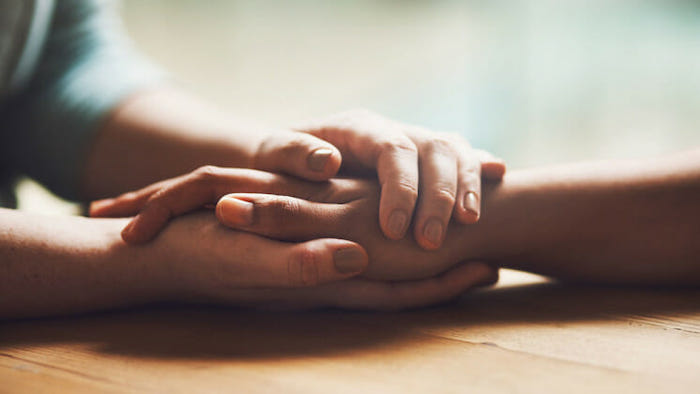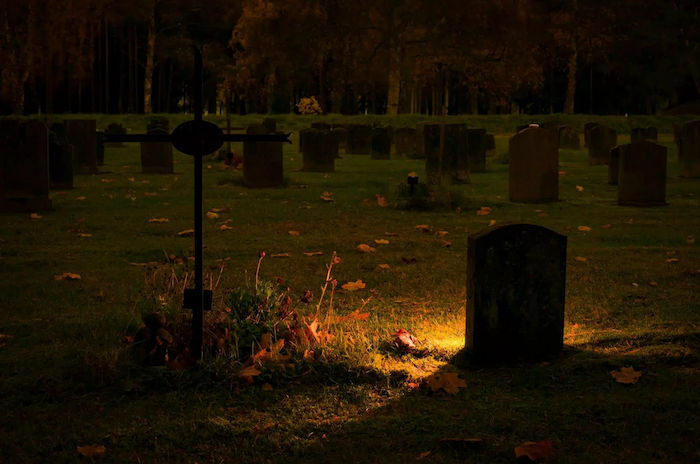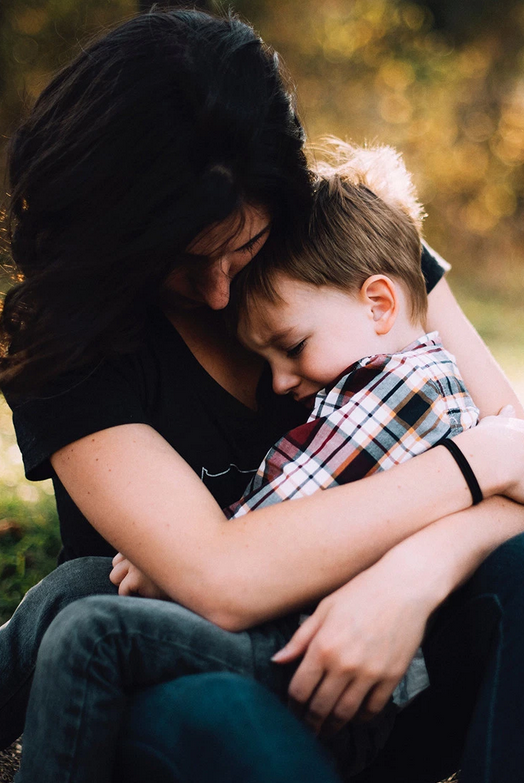My journey to forgiveness

by The Listener
For Katie Anders*, coping with suicide grief means remembering how her husband lived, not how he died.
Every suicide story that hits the headlines stirs the pain for those of us who have been bereaved by such a loss. The headlines are bigger and somehow more shocking when such high-profile names as Anthony Bourdain and Kate Spade join those of our loved ones. But the grief for those left is the same.
I lost the love of my life to suicide. He was middle-aged, very successful in his profession and loved by family and a wonderful group of friends.
Our communities have such a sense of helplessness and hopelessness in the face of suicides. It is in the crisis period leading up to a suicide that there is the chance for effective intervention, and yet there is little effective help.
And, yes, there is a still a stigma around mental health. For us, it meant we had to protect my husband’s reputation for when he returned to work. The professions are not a lot more enlightened than anyone else.
The crash happened one May day. I walked in on him sitting at his desk at work, and was shocked to find him weeping. He said, “I can’t do this any more.”
We visited our GP and at first it seemed like exhaustion; just plain burnout. We had just come back from three weeks’ travelling and he hadn’t slept well; he had returned to a mountain of work. It was a job he loved and in which he had quietly excelled. He was a gentle-natured man who worked in a world of ambitious colleagues and he had forged a different path to the top. He was respected by most, admired by many.
We quickly arranged for his work to be done by others and he took “stress leave”. Within weeks, it was clear the malevolent black dog of depression was stalking him. We did all the right things: exercise and a good diet. He had great support from loved ones. He began using antidepressants and sleeping tablets. We saw an occupational psychologist, who was enormously helpful. Yet still the black dog circled.
Weeks passed. Then one day I found him curled into himself on a chair, his back to me. I tried to engage him, but he wouldn’t look at me. I took his face in my hands, forcing him to meet my eyes. I demanded to know what he was thinking, but in reality I knew.
He had reached a tipping point. We urgently needed more expertise. An acquaintance who was a good psychiatrist agreed to see him immediately (and privately).
I was determinedly optimistic we would get through it. We were a “lucky couple” whose marriage had fulfilled each of us. We laughed a lot and loved a lot. We had lovely children, now grown and forging their own lives. Many saw our marriage as one of the successful ones; we both thought so, too.
His promise to me that he wouldn’t act on his thoughts seemed to be enough to hold him back from the edge – that and the increasingly heavy doses of medication he needed. We began cognitive behavioural therapy (CBT) with another psychologist.
A few weeks later, things seemed to be moving in the right direction until some odd things started to happen. The medication had tipped him into a manic state, so he had to withdraw from all the antidepressants. The psychiatrist felt that a prior serious head injury had probably caused the manic response, so mood-stabilising drugs were required.
Some normalcy began to return to our lives. My husband continued his programme of health and fitness and after a few weeks, he seemed well enough to return to work for short periods. We breathed easier.
But then an emotionally stressful event occurred: he was desperately concerned about someone close who was in strife overseas. His sleep was seriously disrupted and he was very worried. The depression was renewing its grip and as the antidepressants were now contraindicated, we were at a loss for effective solutions.
The psychiatrist hoped that since the relapse was in its early stages, we could work to stop its progression by using mindfulness meditation and more CBT and counselling. He was very low, but again, he reiterated his promise to me.
Three days later, he was dead. The black dog’s work was done.
*The writer’s name has been changed.
Questions and guilt
On the night he died, I sat at his bedside, shattered by the horrific development, the crashing grief threatening to crush us all. I was full of confusing questions and guilt. How could he have done this? How could he have walked past me as I slept and not woken me and sought my help?
Sometime in the wee hours, I decided to write him a final letter. And as I began, some things crystallised. I needed to forgive him before we let him go. I read him my letter aloud, then later repeated the words at his funeral. That night, wracked with the deepest pain, I told him, “The man who did this thing was a man in the grip of a fierce depression. It was the depression that broke the promise, not the man that we love. That’s why, distraught as I am, I have to forgive you, because all that I know and have experienced of you through all the years tells me that you never wanted to hurt us, never wanted to leave us.”
Some months later, I heard someone (also bereaved by suicide) on a radio programme put it very succinctly: her husband hadn’t been leaving her or her children, he was leaving himself.
Years before, I had read Elisabeth Kübler-Ross’ book On Death and Dying and, later, I trained and worked as a volunteer with terminally ill people, and learnt about bereavement support.
It’s accepted now that work around the stages and processes of grief was too rigid. Each grief experience is unique and people don’t necessarily experience all the stages or go through them in any particular order. For example, while others felt anger at my husband, I never have. Even pathetic attempts to somehow manufacture anger failed. How could I be angry at someone so broken?
In the aftermath, I felt the deepest sadness for him, for his loss, for all that he would never get to experience. I felt devastatingly sad for our kids. But for me, the grieving process was delayed by my upbringing. It held messages of “Don’t you feel sorry for yourself” and “Pick yourself up and get on with it”.
It took a long time to let myself feel the full devastation of my own loss. The numbing effects of shock meant that I walked around in a world that felt surreal, that simply couldn’t be true. This wasn’t how our love story was supposed to end. We were supposed to grow old together, travel, have grandchildren.
Tortuous paths
Suicide grief holds so many “If only …” and “What if …” questions. What if I had heard him get out of bed? What if I had handcuffed him to me to keep him safe? What if he had slept through those darkest hours before dawn and woken to sunshine?
The “what ifs” are where the self-torture lies. I felt so guilty that I struggled to want to live. Sometimes I still feel surprised that I didn’t die of the brokenness I felt.
Logic says there is no useful purpose in following these tortuous paths. But some years on, they still come into my mind and I speak to those thoughts as firmly and logically as I can.
I learnt a lot from my counsellor about self-forgiveness. It is more of a journey than a destination. Someone spoke to me about the idea of practising my husband’s presence rather than his absence. It seemed to break down some of the enormity of it all. If I had to completely and immediately accept his absence from my life, you might as well have asked me to swim the Atlantic. But if I could practise his presence, which permeated my life, while slowly adjusting to his loss, then it felt more like paddling in the waves at the water’s edge and not getting completely out of my depth.
Practising his presence is simply being mindful of his hand in the life I continue to live. It’s being able to access his way of thinking an issue through. His presence is in the millions of memories. It’s practising his habits of observing and appreciating the beauty around. He is visible in his imprinting on our kids … aspects of him in their personalities. It’s in watching rugby with my daughter and shouting the way he shouted. It’s in the kids’ love of language and awful puns. It’s in the thousands of photos taken over the years.
We remember how he lived and not how he died, but the truth is that suicide grief is a unique grief. People aren’t comfortable around it. I accept now that even if my life should suddenly become deliriously happy, the loss of such a precious partner through suicide will forever be a hugely black awfulness on its timeline.
Actress Dawn French said that when her father committed suicide, it was like a bomb went off in their family. It’s an apt description. My life is forever changed, my confidence diminished and my happy moments are often tinged with poignancy. At the risk of sounding overly dramatic, I feel my heart carries a permanent scarring.
Few understand the complexity and longevity of suicide pain. It isn’t easy, as one friend put it, to “move forward” as a simple act of will. If my husband had died of a heart attack or cancer, I know that grief might have been easier to move on from.
Yet I take joy in our amazing children, their partners and now a grandchild. I am fortunate in having some close friends. I try not to let the manner of his dying take more than it should. Above all, he wouldn’t want that and he would hate the pain that his suicide caused. Despite it all, I will be forever grateful that my life was greatly enriched by a truly lovely man.
Complete Article ↪HERE↩!








